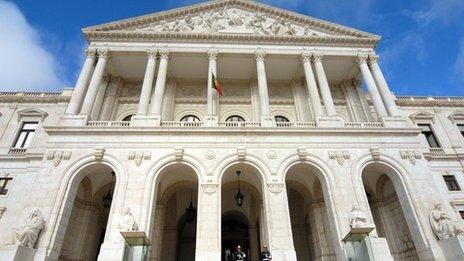Anger as Portugal marks 40 years of democracy
- Published
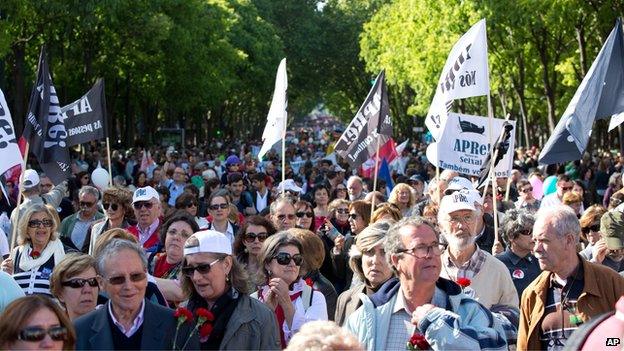
Tens of thousands took part in a march in Lisbon celebrating the anniversary
Protests over EU-imposed austerity have overshadowed the 40th anniversary of democracy in Portugal.
Several thousand people marched in central Lisbon and listened to speeches criticising government cuts.
Participating in the protest marches were some of the leaders of the 1974 Carnation Revolution, which ended almost five decades of dictatorship.
Portugal has had to implement severe austerity measures since being granted an international bailout in 2011.
Boycott
Influential figures who took part in the 1974 revolution - in which junior officers overthrew the government - boycotted the official anniversary for the third year in a row.
Government-organised celebrations also took place a short distance away from the protests.
Vasco Lourenco, one of the coup leaders, criticised Portugal's current right-of-centre government and questioned whether Portugal should remain in the EU at all.
Otelo Saraiva de Carvalho, another officer who helped organise the coup, said austerity was "the death warrant of the hopes and values" of the revolution).
Street artist Miguel Januario told AP news agency that the Portuguese "had allowed new forms of dictatorship - in this case financial - to take over".
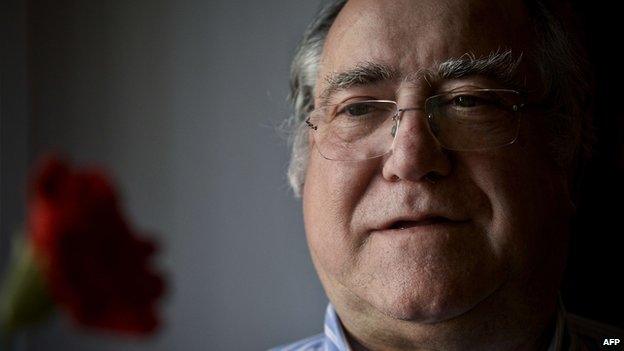
Vasco Lourenco was one of the instigators of the Carnation Revolution
Portugal celebrates the Carnation revolution with a national holiday on 25 April, known as Freedom Day.
Officials paid tribute to the coup and said austerity would soon come to an end.
"By happy coincidence, we commemorate this symbolic day at practically the same time that we end our economic aid programme," said Prime Minister Pedro Passos Coelho.
The three-year bailout programme will end on 17 May. In May 2011 the nation received more than 78bn euros ($102bn; £67bn) in emergency aid.
Unemployment in Portugal remains among the highest in the eurozone.
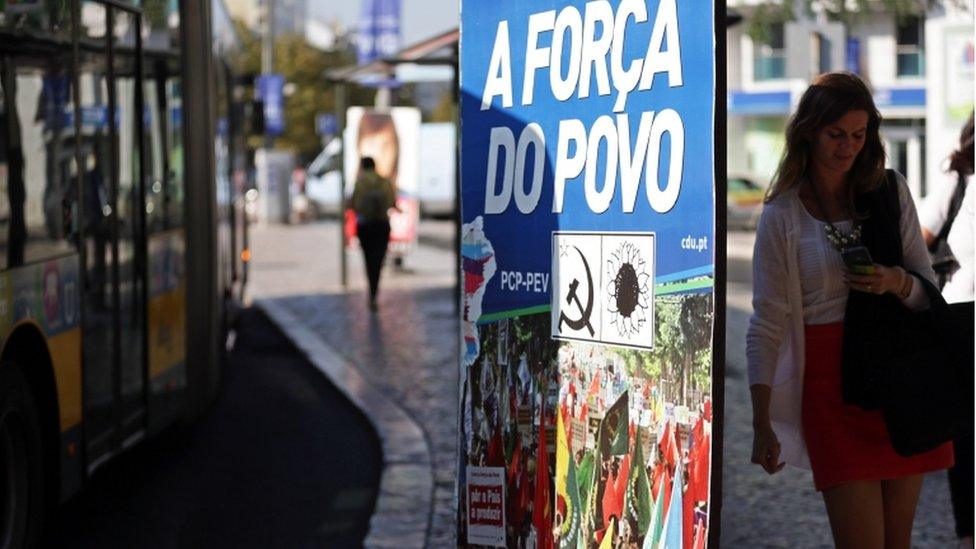
- Published22 March 2024
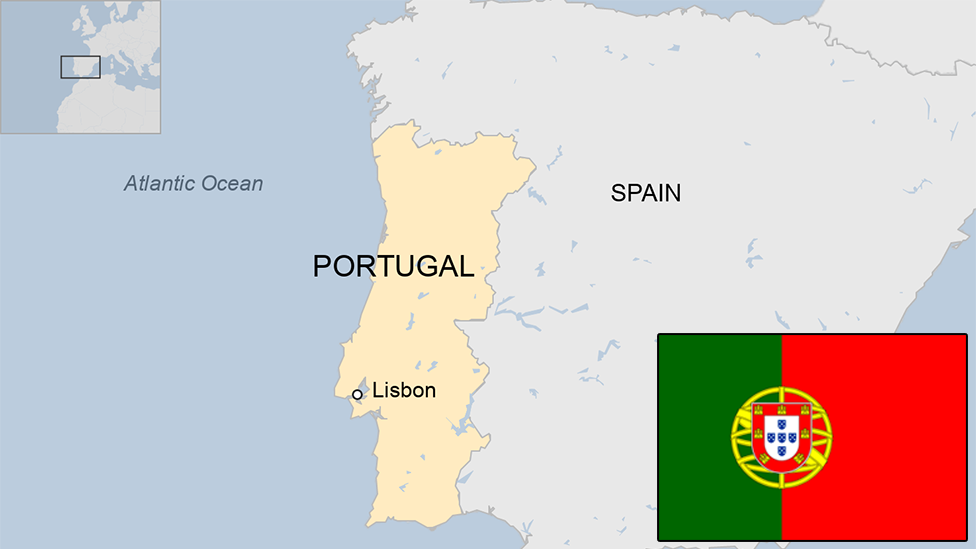
- Published3 October 2013
